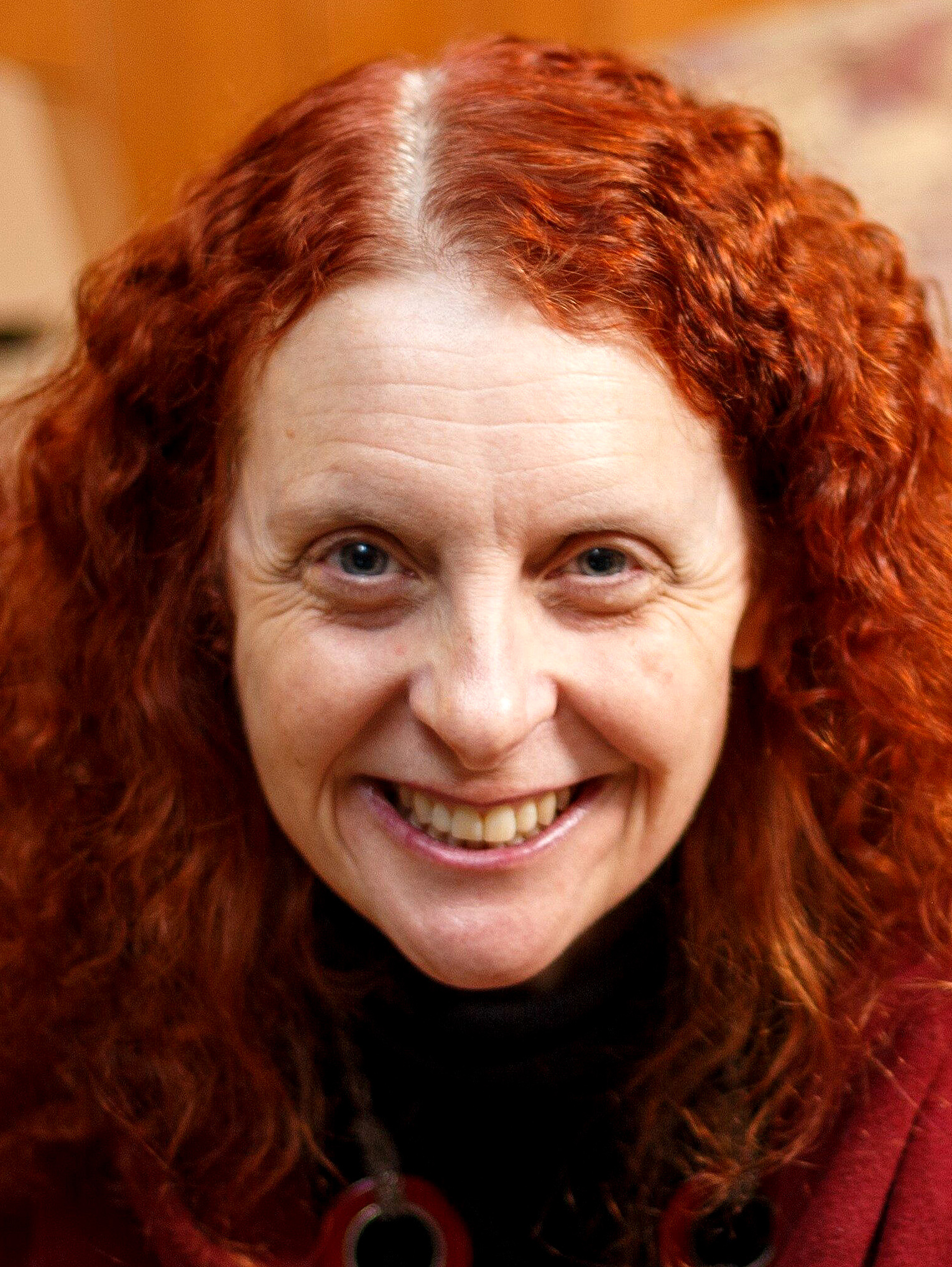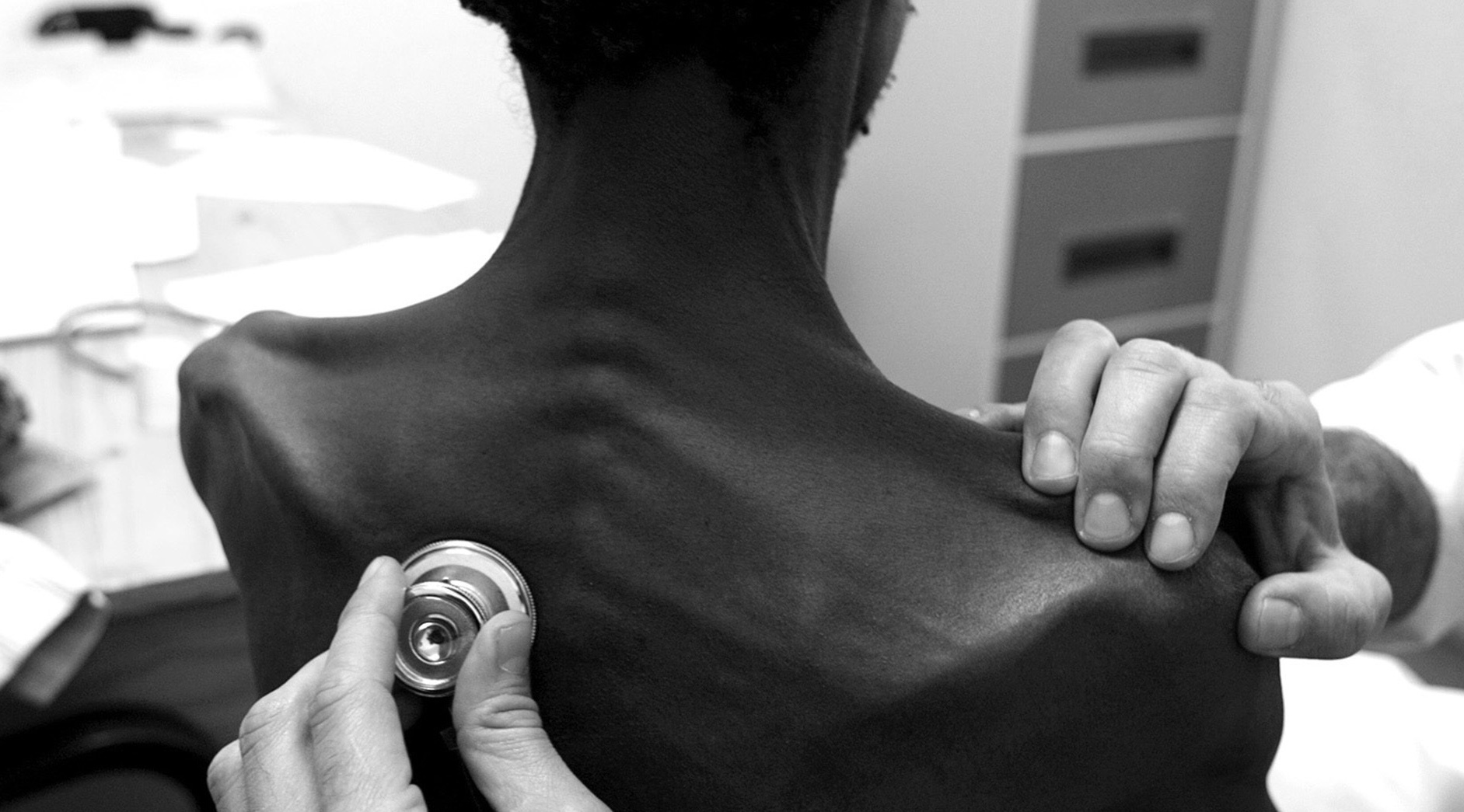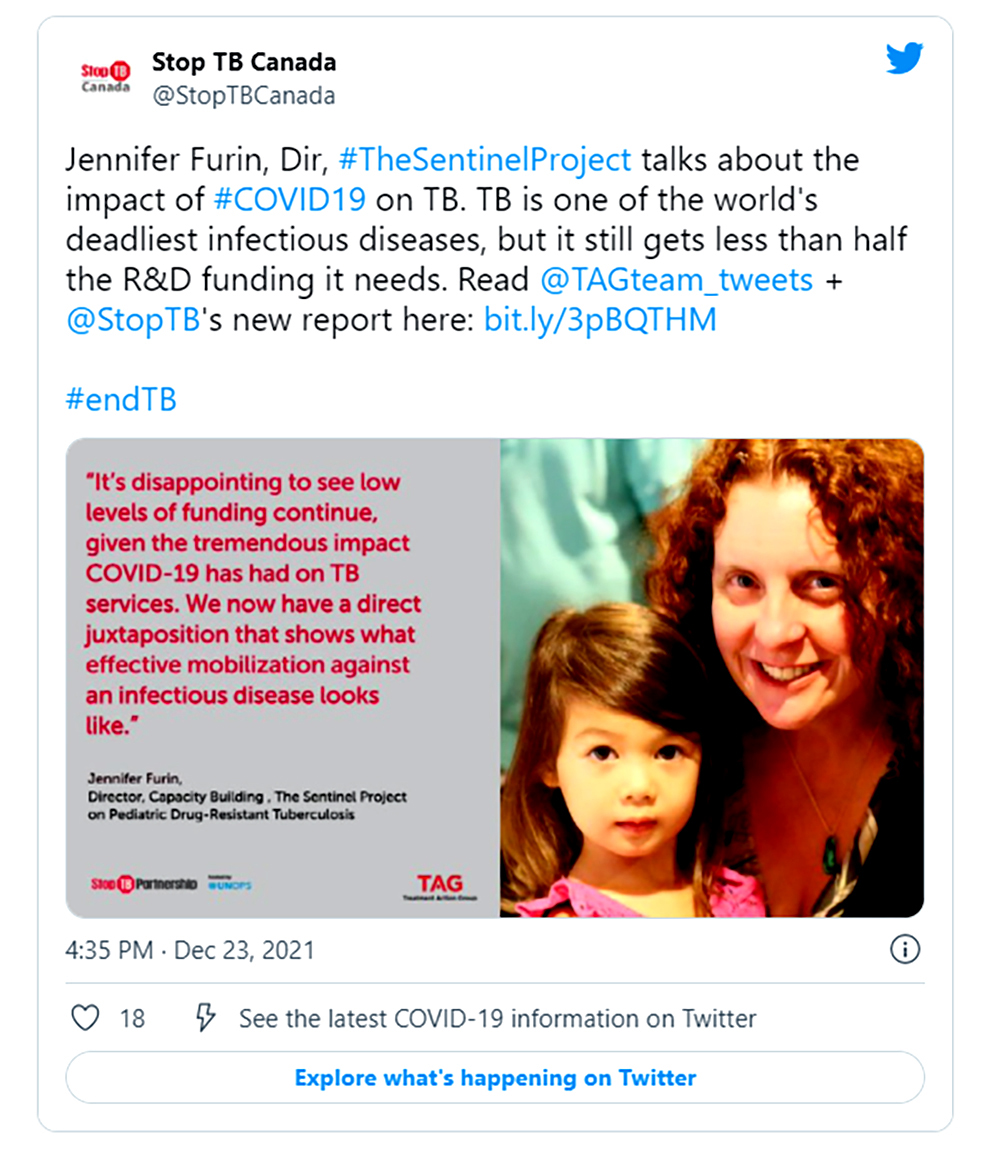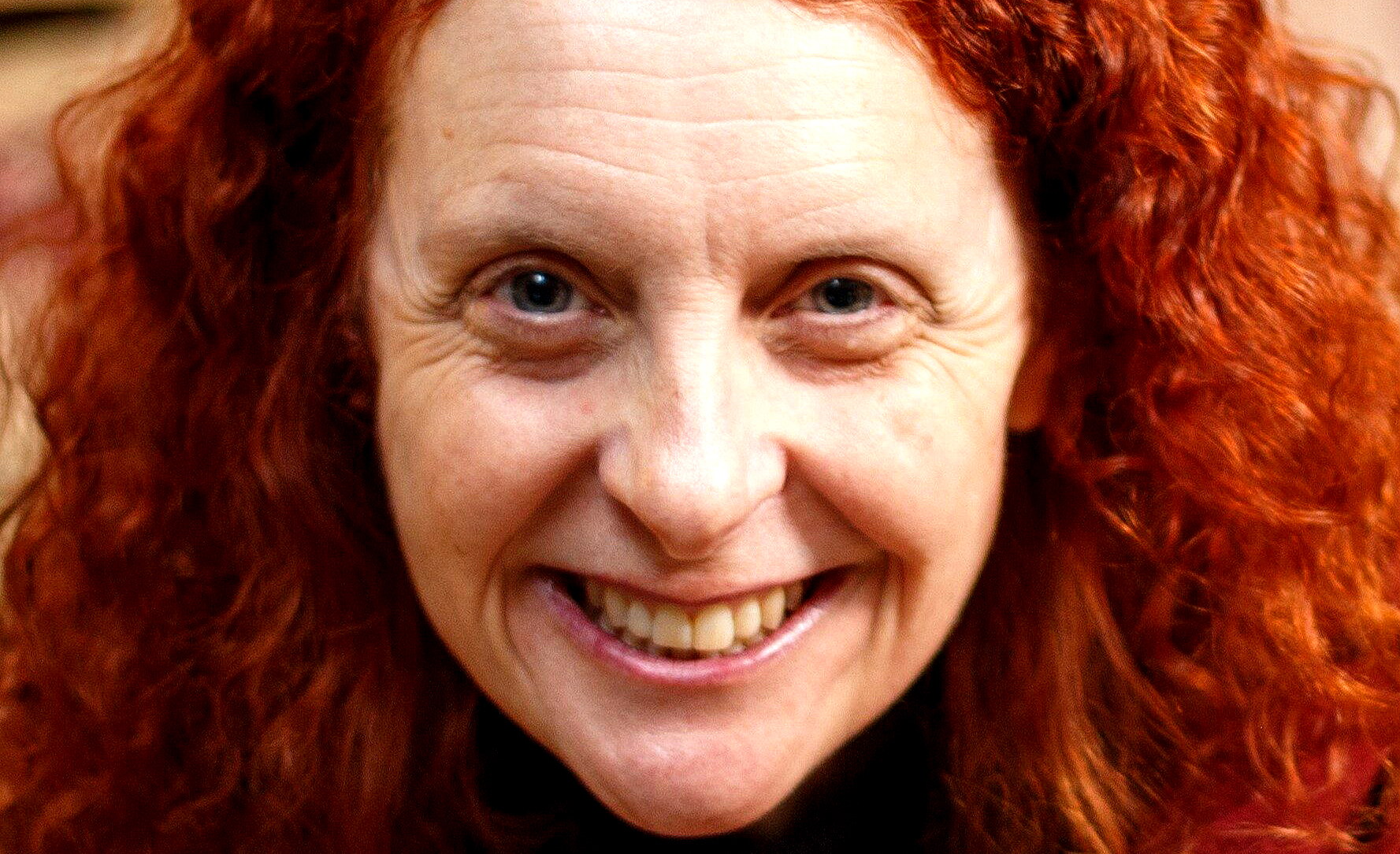In treating drug-resistant forms of TB, Dr Jennifer Furin has been at the forefront of advocacy efforts to replace hearing loss-causing injections (such as kanamycin) with a new and better drug called bedaquiline, which is taken in pill form. Speaking to Spotlight this month, she lauded South Africa as a “global beacon of hope” for mostly eliminating the use of such injections – “those horrible, horrible injections”.
Furin’s international projects include working with Médecins Sans Frontières in Khayelitsha. “Looking at the new things that have come out in the drug-resistant TB space, many of them were started in Khayelitsha,” she says. “I mean, South Africa’s got a really wonderful TB programme in terms of the innovation around drug-resistant TB. Working in Khayelitsha has been an amazing opportunity.”
Described by a peer as a “relentless optimist, but not in a naive way”, Furin also spearheaded clinical trials on new TB-combating drugs in her hometown of Cleveland, Ohio in the US, where she lives with her husband, an engineer.
‘A sacred moment’
Over Zoom from Strongsville, a suburb in Cleveland, Furin describes the doctor-patient relationship as sacred. “Even here at the hospital in Cleveland, when my patients come to the hospital they will have a little angel pinned to their gown. We all know, being sick is scary. It’s a terrifying experience. I view the doctor-patient relationship as a sacred moment. When someone comes to see me, it’s because they’re sick and they’re scared.”
 Dr Jennifer Furin has fought drug-resistant tuberculosis since 1995, when she worked as a student in a poverty-stricken suburb of Lima, Peru. (Photo: Supplied / Spotlight)
Dr Jennifer Furin has fought drug-resistant tuberculosis since 1995, when she worked as a student in a poverty-stricken suburb of Lima, Peru. (Photo: Supplied / Spotlight)
In the cutthroat global health sphere – an interdisciplinary mix of clinicians, epidemiologists and statisticians, with added motives around politics and profit – what sets Furin apart is her keen empathy for marginalised people.
Furin relays how she periodically shrieks, “You can’t do this, this is wrong!” at World Health Organization meetings. “And then they say we’re never inviting you again’ and I say, well, that’s okay because I don’t ever want to come again. And then, sort of three years later, we have the same fight all over again.”
Her big issue is powerful countries withholding drugs from poorer countries where sick people need them. “Protect the drugs, right? This is something you hear all the time in public health circles,” says Furin, adding that she often hears, “Well, we need to protect bedaquiline. Well, we need to protect delamanid. I’m sorry.” “I said, when you use that terminology, you make it sound like my patients who are sick now don’t deserve that drug because you’re protecting it. It means you’re protecting it for someone else in the future. For some unnamed population. And, well, that unnamed population is always wealthy and white and lives in rich countries.” (“Protecting” typically refers to limiting a drug’s use so as to reduce the development of resistance to that drug.)
Growing up, what honed her fierce instinct to fight for vulnerable people?
“I grew up in a very traditional Catholic household but my parents were always very justice-oriented,” she says. “You know, I remember crying for a toy at the store. My mother would be like, you can’t have that toy. You have too many toys. There are kids who don’t have toys.
“I have a distinct memory of my mother. I was a child and this terrible thing happened to our neighbours. The neighbour, he killed his whole family and burnt their house down. It was a terrible thing. But I remember my mom making food – spaghetti – and she took it to him in jail. You know, all the other mothers were like, what is she doing? But my mother said no, he needs help. She’s a very Christian woman, my mom, but not like judgemental. She really lives like that every day.”
 In 2007, what was then the world’s largest drug-resistant TB breakout ripped through Tugela Ferry in KwaZulu-Natal and spread around South Africa. (Photo: Gallo Images / Sunday Times / James Oatway)
In 2007, what was then the world’s largest drug-resistant TB breakout ripped through Tugela Ferry in KwaZulu-Natal and spread around South Africa. (Photo: Gallo Images / Sunday Times / James Oatway)
The patients’ perspective
Furin completed a PhD in medical anthropology at the University of California in Los Angeles in 1995, before attending Harvard Medical School in Boston in 1999.
“At the University of California I had a really amazing professor who was teaching a medical anthropology course. I just loved it and it became my focus. It was all about what drives people’s understanding of their illnesses. Their beliefs around what causes them to be sick and what they need to do to get better. The perspective is that the patients’ perspective is the one you need to understand. Instead of trying to tell people what to do. This really resonated with me as especially the TB space has always been characterised by a very paternalistic approach,” she says.
Furin always wanted to be an HIV doctor. “Growing up in the 1980s, I just remember thinking how hard it must be to have this disease because people were very cruel about it. I grew up in a small town and I remember there were two brothers who had haemophilia and both of them got HIV and no one would talk about it and no one helped them. I just remember thinking this is terrible.”
At Harvard, two mentors in medical anthropology shaped her path. They were physician Paul Farmer, who co-founded the international non-profit advocacy organisation Partners In Health, and physician Jim Kim, also a co-founder of Partners In Health who formerly served as president of the World Bank. Farmer died suddenly last month in Rwanda.
Under their mentorship, Furin ventured into the field of TB “quite by accident” given that it’s not a common disease in the US.
“This was at a time before they [Farmer and Kim] were terribly famous,” says Furin. “I started working with them, you know, just doing student things, like finding articles at the library. And they had started this exploratory Partners In Health project in Lima for people with drug-resistant TB and needed a student. And that’s how I started doing TB. And I was just shocked. Where HIV, at this point, was really driven by a lot of activism and people fighting for their rights, the TB space was pretty awful.”
Time in Lesotho
In 2005, she moved to Lesotho. “I was tired of drug-resistant TB. Like I was tired of fighting. So I said to Paul Farmer and Jim Kim, I need a break. I want to do HIV. And at that time, Jim had been asked by the government of Lesotho to come and better understand what was going on there because they had started this campaign called Know Your Status, where they were offering free testing for everybody in the country, but no one was getting tested. I’d never heard of Lesotho. But after I agreed to go, I looked it up.”
Asked about accepting first before researching the location, Furin laughs: “I would’ve gone anywhere had there been a compelling enough reason to go.”
At the time, Lesotho was heavily affected by HIV – Furin was 36, while the country’s average life expectancy was just 34.
“And so, when I arrived, it took us all of five days to figure out why no one was getting tested and it was very simple. There was no treatment. And so, when you spoke to people, they were like, well, why would I get tested? You know, I would just rather not know if I’m going to die. I’m going to die anyway. And so I called Jim and I said, listen, this is not a big mystery. And he said, okay, well then let’s figure out how we can start a treatment programme there.”
Piloted around the mountains in a tiny Cessna plane, Furin says she travelled around Lesotho over the next two years, helping to set up remote, rural clinics with antiretroviral therapy.
“And so, we just started going out to communities and testing people and offering them treatment, and lo and behold, when there was treatment available, everybody wanted to get tested. And so within two and a half years we started almost 10,000 people on ARVs.”
In 2007, what was then the world’s largest drug-resistant TB breakout ripped through Tugela Ferry in KwaZulu-Natal and spread around South Africa. That year, Furin for Partners In Health, along with Lesotho’s health ministry, opened Botšabelo Hospital in Maseru, a 24-bed facility for patients with multidrug-resistant TB. To this day, Furin’s CV notes under language capabilities, conversational Sesotho.
“And so, yeah, I’ve continued to work on drug-resistant TB for 27 years now,” she says.
Speaking to Furin, there is a sense of importance around “good listening and observing” of local experts and doctors, and collaborating with the governments in particular countries. Essentially, not to assume superior knowledge because you’re from a wealthier country such as the US.
She highlights the language of TB. “When people talk about TB, they use the language of contagion, which I don’t like because it’s very stigmatising, humiliating. I mean, in Khayelitsha, we do a lot of counselling around disclosure. We work with the concept of shared air. A family shares the same air, thus family members might have TB. Not, ‘you have TB, and you gave it to me, and to him and her’,” she says.
Telling the truth
Reflecting on her career, Furin again mentions her late mentor and colleague, Farmer. “So, Paul Farmer taught me something. We were in Mexico, facing a very overwhelming situation. It was during a low-level conflict. And I said to him this is overwhelming, I don’t know what to do, and he said, you know what, Jen? You can always just tell the truth.
 “And I think what Paul was saying to me is that maybe it’s not always about fixing things. Maybe it isn’t always about having an answer all the time. Maybe it’s more about seeing the reality of what’s in front of you, and helping people tell the truth about what’s happening to them.
“And I think what Paul was saying to me is that maybe it’s not always about fixing things. Maybe it isn’t always about having an answer all the time. Maybe it’s more about seeing the reality of what’s in front of you, and helping people tell the truth about what’s happening to them.
“So, Partners In Health also talks a lot about this term ‘accompaniment’, which is walking with people through their journey, right? So when I’m at a meeting and somebody says this person isn’t going to take their medicine because they don’t come to the clinic on time. That’s a part of a story. But the truth of the story is that a person doesn’t come to the clinic on time because she has to take a truck and she doesn’t have transport money, because she had to buy her children a pencil to go to school.
“So, the truth of her story is that she lives in deep poverty and has to make choices about her children’s welfare versus her own. Can I fix her deep poverty? No. But, can I walk with her through that journey and be kind and understanding and try to help her find a different way to get to the clinic, or make it so that she can take her medicine at home? Sure. I can do all those things.
“Again this is where the anthropology fits in,” she says. “I think medicine wants to fix things. And when we can’t fix things, we blame people. But that’s not what we’re supposed to do. We can’t always fix things, but we can always tell the truth about the people affected.” DM/MC
This article was published by Spotlight – health journalism in the public interest.




 In 2007, what was the world’s largest drug-resistant Tuberculosis (TB) break-out ripped through Tugela Ferry, in KwaZulu-Natal, spreading around South Africa. (Photo by Gallo Images/Sunday Times/James Oatway)
In 2007, what was the world’s largest drug-resistant Tuberculosis (TB) break-out ripped through Tugela Ferry, in KwaZulu-Natal, spreading around South Africa. (Photo by Gallo Images/Sunday Times/James Oatway)